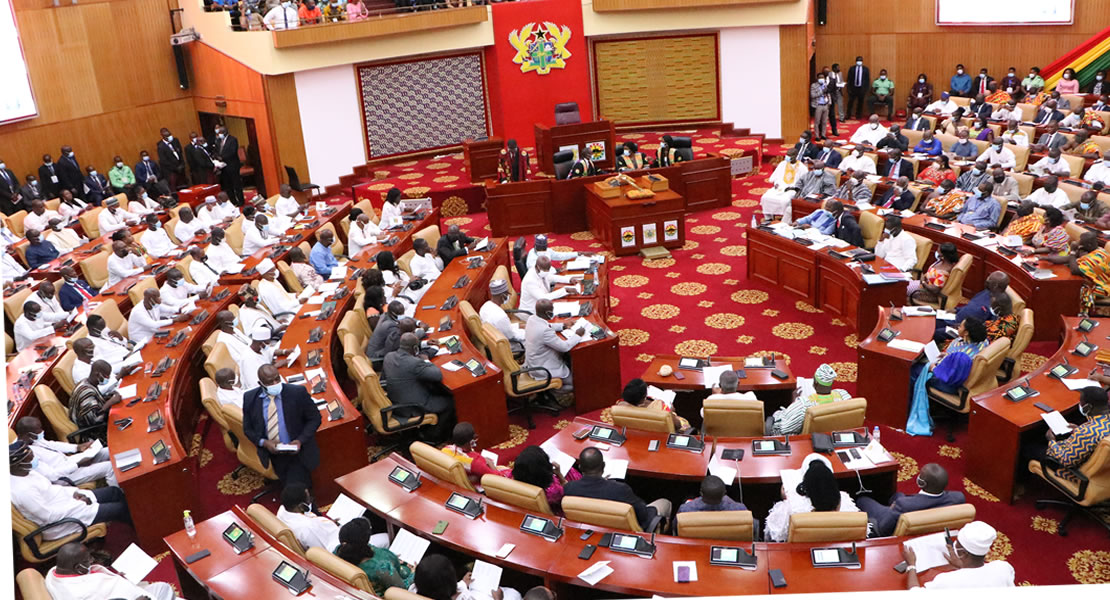
Parliament on Tuesday endorsed the creation of more than one thousand electoral areas under the Local Government Instrument 2010 to enhance the decentralization programme of the country. Ghana now has 6,135 electoral areas after the addition of 1,306.
The Local Government (Creation of New Electoral Areas and Designing of Units) Instrument 2010 (Legislative Instrument 1983) was laid October 19, 2010 in accordance with article 11 (7) of the 1992 Constitution was the vehicle for the addition.
The electoral areas and units currently in use for district level elections in the country were demarcated in 1988 at a time that the country had 110 districts.
The structures however, had changed significantly over the two decades in terms of population, size and other factors which necessitated the increase of districts to 170.
With the increase in the number of Metropolitan/Municipal/Districts, it is important to that the electoral areas are also increased in boundaries, re-aligned in consonance with the new creations.
Mr Kwame Osei-Prempeh, Chairman of the Committee for Subsidiary Legislation and NPP member for Nsuta-Kwamang Beposo, said perceptions from the outcome of the nation wide forum organized by the Ministry of the Local Government and Rural Development in conjunction with the Electoral Commission on the matter demonstrated that there was an urgent need to re-demarcate and re-align the electoral areas.
He said Western Region which formerly had 452 electoral areas would have 92 additional ones culminating in 544, Central Region had 498 with 73 but now has 571, Greater Accra had a base number of electoral areas as 236 but received additional electoral area of 121 making it 357 and Volta Region that had a base total of 517 received an additional electoral areas of 145 to have a total of 662 electoral areas.
Eastern Region moved from a base of 690 electoral areas with 160 to 850, Ashanti region’s 840 electoral areas had an increase of 205 to get a total of 1,045 electoral areas, Brong Ahafo region had 582 electoral areas with 156 newly created ones to have a total of 765, Northern Region had a total of 546 electoral areas with a top up of 156 electoral areas culminating in a total of 702, the Upper East had a total of 270 with 78 newly creations to have a total of 348 and finally Upper West Region had a total of 198 with 93 being added to it to have a total of 291.
Mr Osei-Prempeh observed that the proposed expansion of the electoral areas would go a long way to deepen decentralization in the country. He noted that the coming into effect of the instrument would eliminate some the challenges encountered during the implementation of the existing electoral areas for the district level elections.
He said challenges such as long distances to voting centres, separation of ethnically-bonded communities and separation by physical barriers had been taken into account in the proposed electoral areas in the instrument.
Mr Yaw Baah, NPP member for Kumawu, in supporting the motion called the attention of the House to the fact that Mr Joseph Yieleh Chireh, Minister for Local Government and Rural Development, had erred for issuing a directive that suspended the district level elections.
He quoted article 113 (2) of the 1992 Constitution to make the case against the Minister that he did not have the power that he exercised. “At any time when Ghana is actually engage in war, Parliament may from time to time by resolution supported by votes of not less than two-thirds of the members of parliament extended the period of four years…,” he said. “What the minister did was to set a very dangerous precedence”, he noted.
Mr James Klutse Avedzi, NDC member for Ketu North, said the creation of more electoral areas would not solve the problem of electorates covering long distances to vote.
He said this problem needed the creation of more polling stations. Ms Shirley Ayorkor Botchway, NPP Member for Weija, said the expansive nature of some electoral areas especially those of the Weija constituency made local administration ineffective and called on the House to support the motion.
Source:GNA